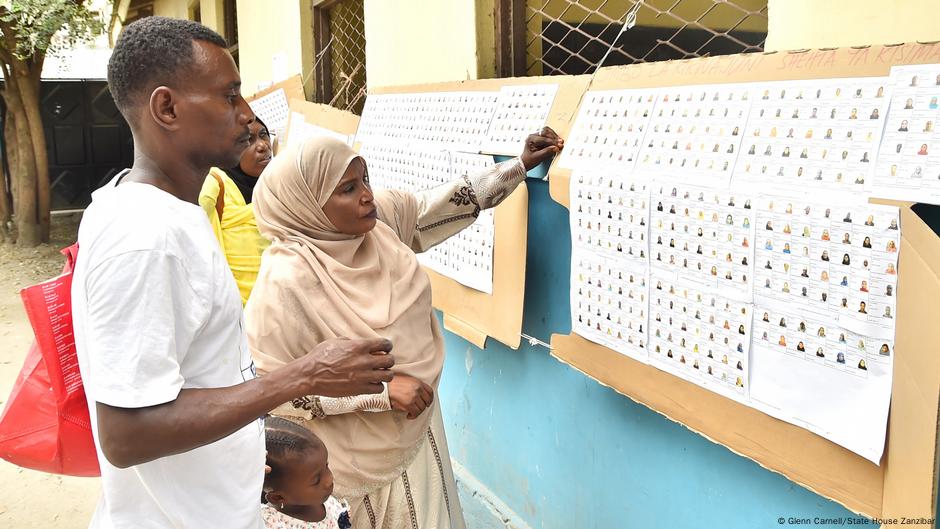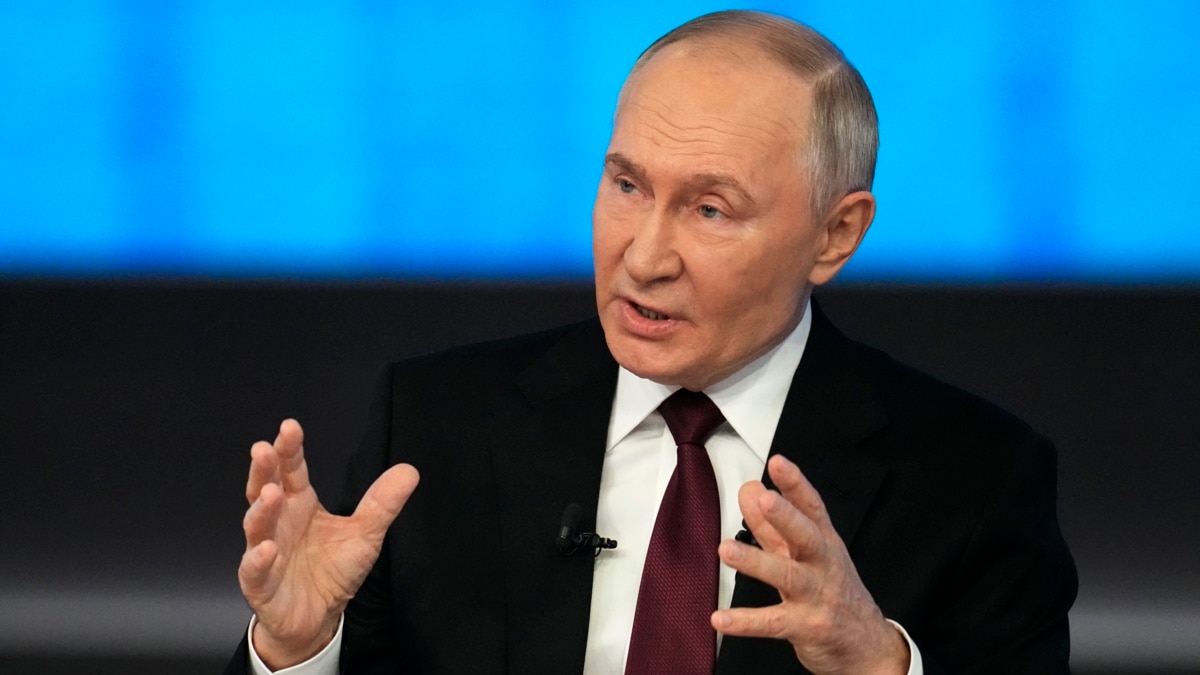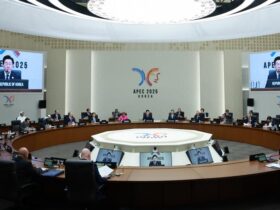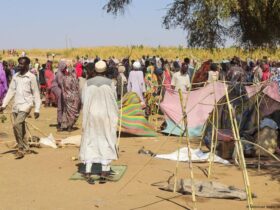Tanzania is heading to elections for the seventh time since multi-party politics was officially restored in the early 1990s.
In theory, women and young voters could be the kingmakers in the vote, becoming the largest voting block by capturing more than 51% and almost 60% of the country’s demographics, respectively.
Yet, as the election campaign enters its final stages, their main concerns are becoming secondary to those of potential MLAs seeking political power.
Youth Vote: Lost in the Void
Nearly two-thirds of Tanzania’s total population is made up of young people under the age of 35, whose main concerns mirror similar issues from other parts of the continent: job creation, access to quality education and securing land rights.
However, when election campaigns are looked at, these concerns are marginalized.
A significant factor contributing to this neglect of youth issues lies in the nature of the country’s political landscape itself: traditionally, Tanzanian youth have favored opposition parties – much to the chagrin of the ruling Chama Cha Mapinduzi (CCM or Party of Revolution), which has historically enjoyed greater support among older generations, having led the country for decades.
Among opposition groups, the main opposition Chadema party (Party for Democracy and Progress) generally enjoys the greatest support among Tanzanian youth.
But CHADEMA’s controversial disqualification from the general elections has left a deep void, which no other group has managed to fill among the country’s youth.
“Chadema’s absence in the elections is an automatic exclusion of a significant percentage of the youth,” says Lavalette Lavakatare, a political analyst based in Dar es Salaam, the country’s largest city.
According to Lwakatare, this leaves Tanzanian youth in a void, with their core concerns addressed only on the ruling party’s terms.
Women: A quiet – and overlooked – force in politics
While women’s visibility is increasing in Tanzania’s political arena, their key concerns appear to be equally ignored in the upcoming poll.
Both the opposition Chama Cha Wazalendo (ACT or Alliance for Change and Transparency Party) – currently the third largest political party in Tanzania – and the ruling CCM have several female candidates, with names linked to the roles of President and Vice-President as well as other leadership positions.
Mazuri Issa, head of the Tanzanian Media Women’s Association (TAMWA) in Zanzibar, says that although women are often seen attending rallies, their role as candidates is only gradually increasing, with any improvements in this area rarely attributed to Samia Suluhu Hassan, Tanzania’s first female president, who has been in office for the past four years.
Issa commented, “This is really a new picture in our politics, although the representation is not proportional.”
However she adds that many of the key issues among women voters – which can range from women’s health to combating gender-based violence and from greater participation in land ownership to better access to micro-finance – have rarely been addressed or even adequately addressed in recent years.
Critics like Issa say that political debate on these concerns has traditionally been limited to symbolic gestures in the past, rather than thorough institutional reform.
Politics beyond empty rhetoric
However, political analyst Saeed Miraji points out that this could be changing, with no recent changes in the ruling CCM party’s attitude towards women’s health:
“CCM has clearly stated in its policies that within the first 100 days [upon election]President Samia Suluhu Hassan will hire many nurses and midwives,” she said, highlighting that this “very specific and measurable promise” is targeted directly at female voters.
Salome Kitomari, editor of the daily Nipache newspaper, agrees, saying that the election rallies “touched on issues related to women – whether it be health, empowerment, or debt, and how these candidates plan to raise women’s living standards.”
While this may seem like a promising step towards women’s empowerment and true equality, analyst Lavakatare raises a key flaw in these approaches: in most cases they do not originate from members of this target group – women.
According to Lavektare, even the president’s own pledges often fail to “outline how to strategically [they] “This will particularly help women and youth overcome their unique challenges, especially in the informal sector or rural areas.”
“The youth and women’s wings of the party often act only as cheerleaders for established politicians – mostly elderly men,” she says, adding that most of the manifestos of the various parties are also written by the country’s male elite: “Business businessmen and urban residents; not real women and youth who are the targets.”
Systemic abuse and misogyny
This, in turn, may also result in those few women and youth who decide to bravely enter the country’s political arena as candidates facing an environment fraught with growing pains that can usually only be overcome with political power and money.
Neither of those two major resources work in abundance for those two groups, especially finance:
“You need money to fund your campaign, and many women are poor. The community looks down on women without money [established] “Politicians often spend huge sums of money,” Issa explains, adding that World Bank data shows poverty is disproportionately high among women in Tanzania.
Furthermore, Issa highlights that this situation exacerbates a far more pressing problem in the East African nation: “The lack of financial freedom makes them vulnerable targets.”
“This is where the issue of sexual harassment and corruption comes in, where many women have been seriously harassed and intimidated while seeking political office.”
Peer pressure at the ballot box
Even among women and youth who are far from actively participating in policy-making, the weight of established gender roles, cultural norms and traditions can be easily felt at the ballot box:
Many voters in Tanzania say they are influenced primarily by what outsiders identify as peer pressure, whether this involves party loyalty inherited over generations within families, strong local support for individual candidates, or immediate relief offered by candidates in exchange for votes – such as small finance handouts.
Particularly in rural areas, there are only a small number of voters who demonstrate a deep level of engagement with actual party manifestos.
An unseen possibility of change
For such reasons, participation of Tanzanian youth and women in politics remains largely passive; Even in a country led by a female president, change appears to be slow.
“Many candidates have mentioned 100-day plans. Women and youth are now waiting to see what actions will have a positive impact on their lives,” says Kitomare, while Lavakatare is more concerned about the voting process on election day itself:
“It would be interesting to know why people go to vote: is it because of the promises made by the candidates and their political parties, or are they just voting because of crowd psychology, or just because they have no other option?”
Edited by: Serton Sanderson






Leave a Reply